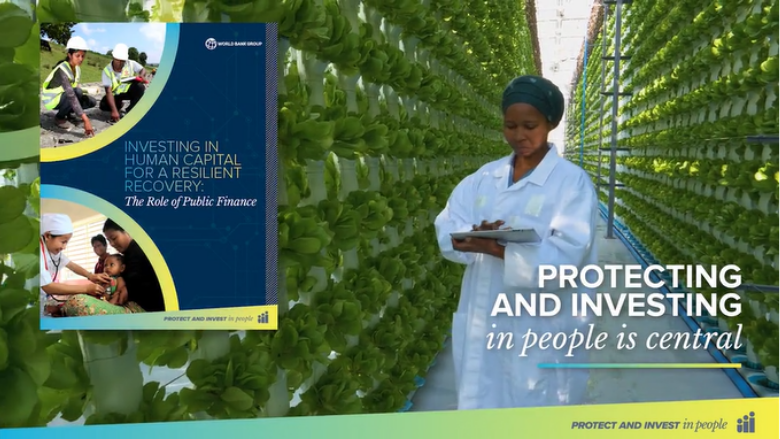| HUMAN CAPITAL FINANCIAL PAPERS | |
|---|---|
| PRESENTATION | FULL PAPER |
| عرض | ورقة كاملة |
| PRÉSENTATION | PAPIER COMPLET |
| PRESENTACIÓN | PAPEL COMPLETO |
| ПРЕЗЕНТАЦИЯ | ПОЛНАЯ БУМАГА |
| APRESENTAÇÃO | PAPEL COMPLETO |

COVID-19 unleashed a global health emergency and an unprecedented economic crisis. Against the backdrop of the most severe global recession in decades, the crisis threatens to erase a decade of progress in hard won human capital gains.
Unless addressed with decisive investments, the scars of the COVID-19 shock on human capital and future productivity could become permanent.
Public finance has a critical role to play in restoring and building human capital, first as a response to the COVID crisis and second as a central element in a green, resilient, and inclusive recovery.
Partnerships are needed between staff and institutions working on human capital and public finance to ensure the adequacy and efficiency of human capital financing. This calls for a whole of government approach within countries and a renewed commitment to global partnerships.
A new World Bank report: Investing in Human Capital for a Resilient Recovery: The Role of Public Finance highlights recent innovations and illustrates actionable steps for the short term as well as directions for the longer term, by country context, with the overarching objective of supporting a resilient recovery.
Findings
Recommendations
Securing the necessary resources involves placing human capital outcomes at the center of the budget process and prioritizing spending that benefits people.
The immediate priorities are:
Sustained recovery depends on improving systems to achieve:
To do this, fiscal space needs to be expanded through raising domestic revenues and through debt restructuring and relief.
We must recommit to helping every person achieve their potential, through investing more in their human capital.